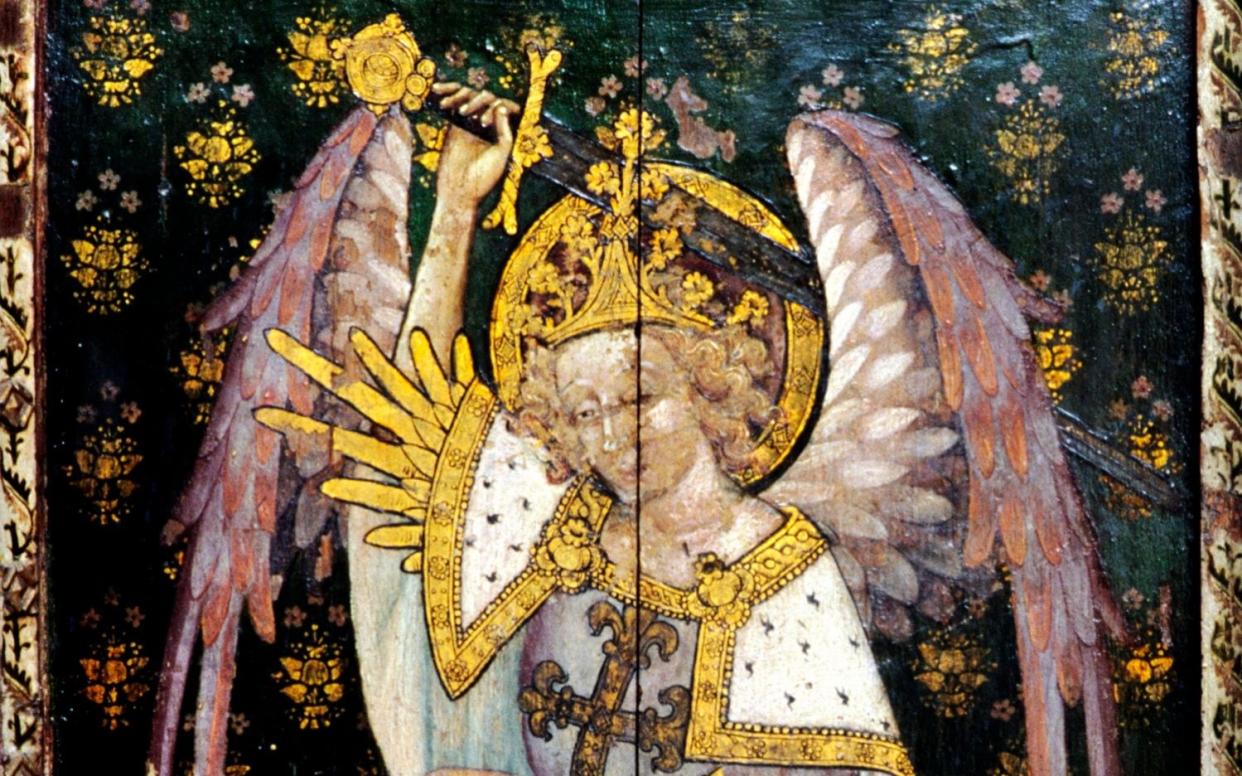Sacred Mysteries: Michael the archangel in the day of battle

For such a short book, only about 600 words long, the Epistle of Jude is full of curiosities, among them a strange reference to Michael the archangel contending with the devil about the body of Moses.
St Jude might have expected his audience to know what he was talking about, but no one has told us. The learned Father of the Church, Origen (who died in AD 254), says the reference was to “a little treatise” called The Assumption of Moses. But nothing has survived that gives an account of the incident.
St Michael, though, has always been prominent in Christianity. He is mentioned in three other places in the Bible, always apocalyptically. The Book of Daniel says that at the end of the world “shall Michael stand up, the great prince”. The Apocalypse itself, which is known in the Authorised Version as Revelation, says that, at an unspecified time “there was war in heaven: Michael and his angels fought against the dragon”.
In this martial role he is depicted in art, often spearing the dragonish devil. Greek icons show him as a soldierly angel too.
More than 800 churches in England are dedicated to St Michael, outnumbered only by St Peter (1,300) and the Virgin Mary (2,300).
He became so much part of English culture that he can go unnoticed through familiarity: the autumn terms at Oxford and Cambridge and the courts’ first law term of the year are named “Michaelmas”. Michaelmas falls on September 29, next Tuesday.
On Michaelmas Day two years ago, the Pope asked pious Catholics to say a prayer that seeks the intercession of the Archangel Michael. This surprised some people who thought Pope Francis trendy, because the prayer in question is old-fashioned.
It had, in 1886, been ordered by Pope Leo XIII to be recited after Mass. It begins, in Latin, Sancte Michael Archangele, defende nos in proelio, “Holy Michael archangel, defend us in the day of battle. Be our safeguard against the wickedness and snares of the devil. May God rebuke him, we humbly pray, and do thou, O Prince of the heavenly host, by the power of God thrust down to hell Satan and all wicked spirits who wander through the world for the ruin of souls.”
It is this prayer that is remembered by the delirious Guy Crouchback in an open boat drifting in the wartime Mediterranean in Evelyn Waugh’s novel Officers and Gentlemen. But, in his fever, Crouchback directs his words to St Roger of Waybroke, a renaming in his confusion of Sir Roger of Waybroke, a Crusader knight whose chivalry he admires.
The Pope wasn’t invoking Waugh in his call for prayers. He was thinking, he said, of the devil as the “Great Accuser” referred to in the biblical Book of Job, who “goes around the world seeking to accuse”. In the Hebrew of the Book of Job, “Accuser” is a meaning of the name Satan. Satan, in that tale, takes away Job’s wealth and kills his children. Job’s answer is: “Naked came I out of my mother’s womb, and naked shall I return thither: the Lord gave, and the Lord hath taken away; blessed be the name of the Lord.”
That is quoted in the burial service in the Book of Common Prayer. It is true of everyone.
I suppose the Accuser takes misfortune and the wicked behaviour of other people as ammunition against God and invites Job or anyone else to fire it. On the other side, St Michael doesn’t make war on earth; war in heaven is over, and his army won.


